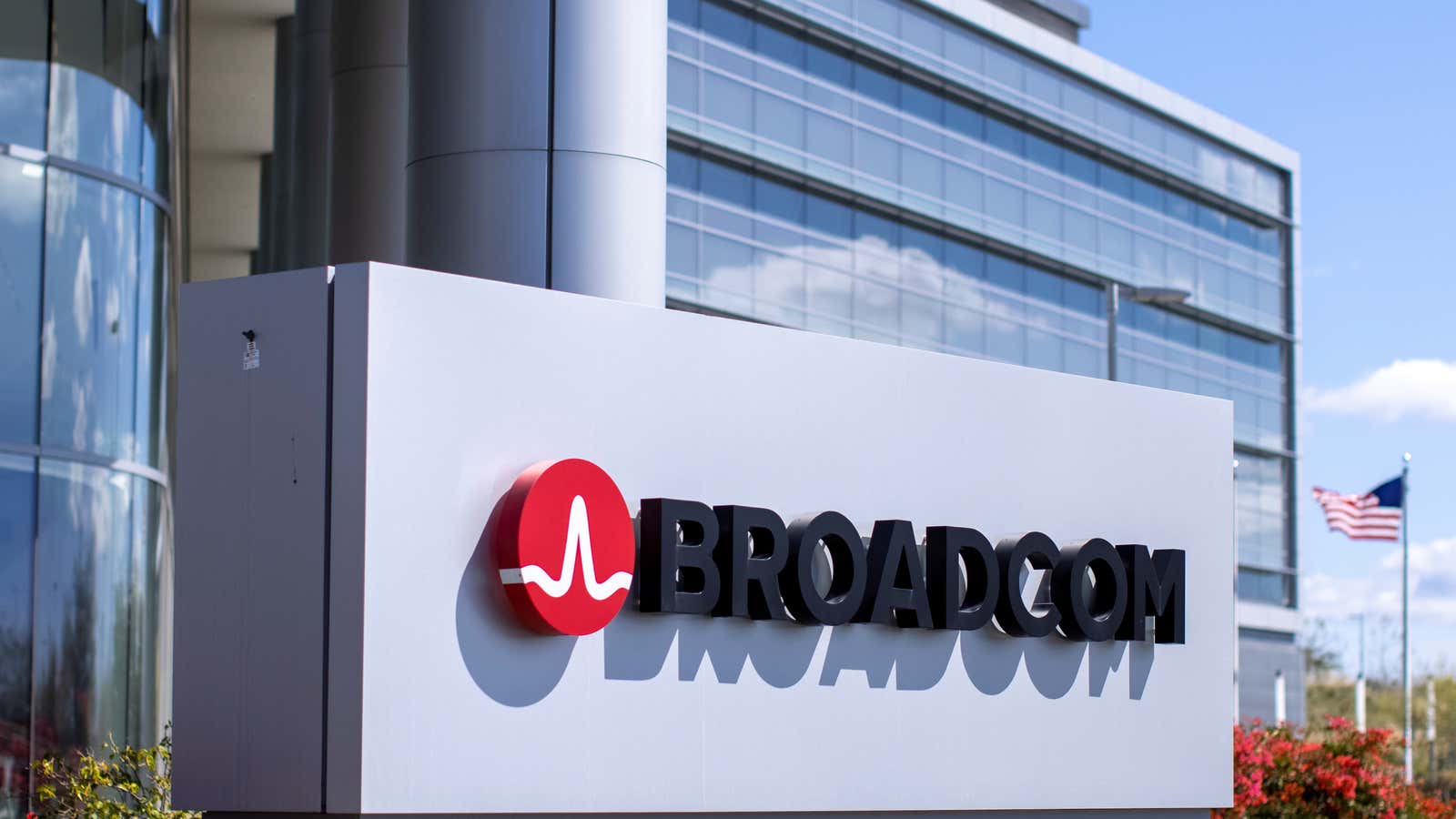Broadcom is one of the world’s top suppliers of the semiconductor chips that form the brains of everything from smartphones to cars to gaming consoles. It currently has a backlog of orders stretching at least eight months long.
Broadcom’s inventory woes are the latest sign of a broader chip shortage snarling supply chains across the globe. Pandemic-fueled chaos in the supply chain for semiconductor materials created an initial backlog in the middle of 2020. Then, stronger-than-expected demand for cars, combined with a seasonal spike in smartphone sales, drove demand much higher than supply.
On a March 4 earnings call, Broadcom CEO Tan Hock Eng said semiconductor backlogs have increased “quite significantly” over the course of the first quarter of the year. “We have customers [who] are willing to book out for delivery of those products, out through the rest of 2021,” he said.
The backlog is a sign of how badly manufacturers need chips. Automakers have idled plants from Chennai, India to Ontario, Canada while they wait on shipments of crucial semiconductors that control airbags, navigation systems, and a host of other parts in increasingly computerized cars. In the meantime, Broadcom’s clients have been locking in non-refundable orders that will keep its factories busy into November.
“As we stretch out our lead time, where it goes from three months to six months to eight months, they just book what they need eight months out,” Eng said. “You only do that if you truly believe you need that product to enable your business.”
Semiconductors are so crucial that some buyers may be exacerbating the shortage by stockpiling extra chips, reflecting their fear that the crisis will drag on for quite some time. “We see customers accelerating their bookings for early deliveries and attempting to build buffers and creating the demand-supply imbalance you all hear out there,” Eng said.
But Eng seemed to indicate Broadcom has been working in the background to soothe its spooked customers and convince them not to horde chips. “It’s all about being able to tell your customers…to behave in a rational manner,” Eng said. “We have a reasonable process in place that ensures that our customers get the products—maybe just in time, but they do get the products when they need them.”
Financial analysts spent the majority of the call peppering Eng with questions about how Broadcom is preparing to handle the crush of orders it’s currently facing. The executive did his best to swat down any perception of chaos. “This is not a panic mode,” Eng said in the final moments of the call. “This is a very structured and reasonable process, which we believe at the end of it all still shows real underlying demand, and that’s the way we want to report it.”
